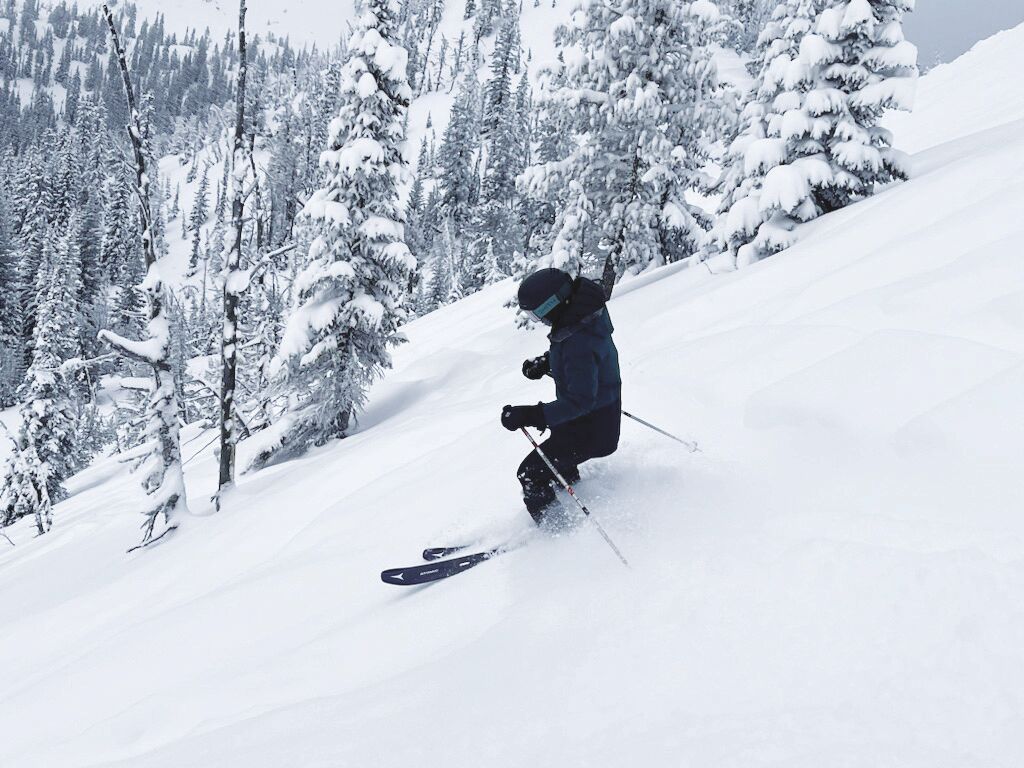Baker City Police focusing on camping, vehicle parking limits
Published 12:45 pm Monday, November 7, 2022

- McQuisten
The Baker City Police Department has ramped up enforcement of both a new and an older ordinance that regulate camping on public property and limit how long recreational vehicles, including trailers, can be parked on city streets.
Trending
The goal, according to a press release from Police Chief Ty Duby, is to reduce the number of vehicles parked for long periods, which can make it a challenge for snowplows, street sweepers and other city maintenance equipment.
“Both street sweepers and heavy snow removal equipment have difficult maneuvering around these and other long-term storage vehicles,” Duby wrote.
“This leaves the streets without regular maintenance and creates hazardous snow and ice conditions for drivers as the weather worsens.”
Trending
A city ordinance limits recreational vehicles, including RVs, utility trailers and boats, to parking on city streets for no more than 72 hours without being moved.
For vehicles that are parked longer, the police department’s code enforcement officer can affix a “dead storage” tag that requires the vehicles to be moved within 10 days.
In addition to the parking ordinance, the city council in May approved ordinance 3383, which regulates camping on public property.
Duby told councilors this spring that the ordinance, which is modeled after existing regulations in other Oregon cities, including Coos Bay, is designed to address problems with homeless people camping on public property.
The ordinance states, in part: “It shall be unlawful for any person to set up tents or any other temporary shelter or to use house trailers, campers or automobiles for the purpose of overnight camping in any city park, nor shall any person remain in any city park after closing hours; provided, however, organized youth groups under competent adult supervision may be permitted overnight camping privileges.”
The ordinance defines parks as including the Leo Adler Memorial Parkway. The ordinance also prohibits camping in several other specific public properties, including within 150 feet of any school, preschool or childcare center, or at the Baker Heritage Museum at 2480 Grove St., the Baker County Courthouse, Sam-O Swim Center, the YMCA gym on Church Street and the YMCA Fitness Center on Pocahontas Road.
The ordinance also states that if someone is living in a vehicle, it must be moved at least every 24 hours and for at least the distance of a city block.
The ordinance also bans camping on public property in residential zones, while it would be allowed, with time restrictions, on public property in the general-commercial, general industrial and light industrial zones. The ordinance prohibits camping during the period 6 a.m. to 8 p.m.
The ordinance applies only to public property. People are not allowed to camp on someone’s property, at any time, regardless of the zone.
Duby was prompted to propose the ordinance after the Oregon Legislature passed a bill in 2021 which states that cities and counties with ordinances regulating camping on public property must ensure those ordinances are “objectively reasonable as to time, place and manner with regards to persons experiencing homelessness.”
The state law also allows homeless people to challenge in court such city or county ordinances.
In his press release, Duby wrote that: “Multiple cities in Oregon have been overwhelmed dealing with transient camping that has littered their city with makeshift shelters, garbage, hazardous waste and caused public outcry. In our best effort to protect Baker City citizens, both with and without homes, the City of Baker City has adopted Ordinance 3383 that regulates camping in Baker City. This ordinance offers reasonable accommodations but does not allow unlimited encroachment of public and private properties.”
Duby cited a camp trailer that the city towed from public property on Oct. 25.
The trailer had a sewage hose placed in the ground, “contaminating the area,” according to the press release.
“Due to an increase in this type of activity, Baker City Police Department officers and our Code enforcement officer will be working proactively as time allows to address these issues before winter sets in,” Duby wrote.
City councilors said they support Duby’s effort to enforce the new ordinance.
“As far as I know it’s working pretty well,” Councilor Johnny Waggoner Sr. said.
Mayor Kerry McQuisten said the council “passes ordinances with the expectation they will be enforced. The real solutions to the homeless issue in Oregon are found at the state level, however. Cities are stuck just trying to find workarounds. Our liberal legislators have created a growing homeless problem and subsequent taxpayer-funded industry to ineptly handle the problem they made. You don’t find this problem at nearly this level in most other states.”
Councilor Shane Alderson said he believes the city’s new camping regulations include “reasonable accommodation for people that are having a hard time.”
“The city council put a lot of thought into our camping ordinance,” Alderson said. “Our ordinances are the law and people should expect that they will be enforced.”
Councilor Dean Guyer said he believes the city’s new camping ordinance, and the time limits on parking recreational vehicles on public property, are reasonable.
“It gives people plenty of time to, if they have friends or neighbors that are visiting and they’re sitting out in the front in their campers, that’s plenty of time for a person to have a trailer out on the street but past that, when you have an ordinance, it needs to be enforced. Obviously there’s no reason to have an ordinance if you don’t enforce it.”
“The city council put a lot of thought into our camping ordinance. Our ordinances are the law and people should expect that they will be enforced.”
— Baker City Councilor Shane Alderson
Please turn to Page A3 for a story about other cities, including Portland, that are struggling to deal with people camping on public property.









